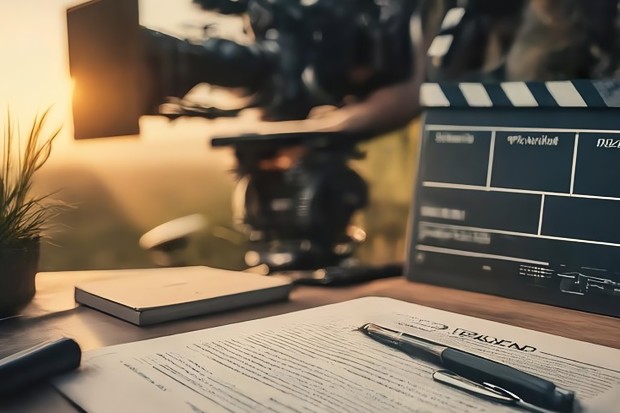Pubblicato il 23/04/2024 17:23:55
CINEMA INDUSTRIA / MERCATO EUROPA
in collaborazione con Cineuropa News
L'Osservatorio europeo dell'audiovisivo fa il punto sulla produzione indipendente e sul mantenimento dei diritti di proprietà intellettuale
di Davide Abbatescianni
18/04/2024 - Il nuovo studio scava in profondità nelle legislazioni nazionali dei 27 Stati membri dell'Ue più il Regno Unito
This week, the European Audiovisual Observatory (EAO) published a new report titled “Independent Production and Retention of Intellectual Property Rights”. The study, co-financed by the European Commission under the Creative Europe programme, explores the national approaches to defining independent producers and productions, while looking at the national rules governing the retention of intellectual property rights (IPR) concerning films, series and programmes when licensing them to broadcasters and on-demand audiovisual services.
The data used in the report were provided by a pan-European team of national experts and have been cross-checked with the respective national regulatory authorities.
The study opens with an executive summary outlining the scope of the research – namely, “to provide the European Commission with information on the retention of IPR by independent producers in the 27 member states of the EU and the UK” as well as “to offer a horizontal comparative review of the relevant national legal provisions, identifying trends and approaches”.
Following the methodology note, chapter three provides a comparative analysis of the different definitions of independent production and independent producers in Europe. Since there is no unified definition for such concepts in current EU legislation, national laws can define them in each country. The study indicates that 24 out of the 28 countries have a definition of either an independent producer or an independent production in their national legislation. While the criteria differ from country to country, the report outlines in detail the possible conditions and how they are applied in each country.
The first criterion relates to the financial independence of the producer in relation to the audiovisual media service (AVMS) provider, in terms of the capital participation or shares held by such a provider in the production company, its financial contribution to the co-financing of the audiovisual work and, lastly, its financial control over the production company. In other words, the producers’ control over their companies and the work being produced are key factors.
Next, the study zooms in on the “operational” criteria of independence, which refer to the ownership and business independence of the production company in relation to the AVMS provider.
Finally, the ownership of “secondary rights” is referred to as a criterion for the independence of the producer with regard to the AVMS provider under EU law. The report looks at how this criterion of the retention of IPR is used in national laws. In practice, only one-third of the countries studied include in their national legislation a reference to the ownership of "secondary rights" or IPR as a criterion for defining the independence of a producer in relation to an AVMS provider.
This chapter is rounded off by a look at how the rules on the retention of IPR apply when public service media providers commission the content. In this case, the rules governing the retention of secondary rights by the producer are expressly referred to, and their prerequisites are clearly determined.
Chapter four includes the country summaries for the 27 EU member states plus the UK. For each country, the authors provide the national definition for independent producers or production, when available. Moreover, they look at the national rules for the assignment and retention of IPR in each country.
CARTOON 2024 Cartoon Next
Tre emittenti pubbliche europee illustrano le loro nuove produzioni e le loro strategie di coinvolgimento del pubblico
di Davide Abbatescianni
17/04/2024 - La sessione, organizzata nell'ambito di Cartoon Next, ha visto la partecipazione di rappresentanti della RAI italiana, della HRT croata e della BBC
Day 3 of Marseille’s Cartoon Next (9-11 April) hosted a panel discussion titled “What’s Next for Our Broadcasters?”, moderated by Christophe Erbes. The talk saw the participation of Krešimir Zubčić, of Croatia’s HRT; Anna Taganov, of the BBC; and Annalisa Liberi, of Italy’s Rai Kids.
Liberi explained that Rai Kids’ engagement and production strategies adopt a cautious pace – probably slower than one would expect at a time when the landscape is dominated by a number of platforms and tech innovations. Rai Kids’ overall budget consists of €1.5 million for in-house productions, and €24 million for co-productions and acquisitions, including €18 million for animated content. “We strongly connect with kids and their families through our two linear channels, Rai Yoyo for pre-schoolers, and Rai Gulp for older kids,” she said, adding how Rai Radio Kids focuses on producing podcasts and other child-orientated audio content. Aside from rare exceptions, Rai Kids doesn’t have any slots on the pubcaster’s generalist channels.
The division’s main goals are providing the best content available for kids, supporting Italian and European creatives, and fostering innovative languages, styles and techniques. Rai Kids creatives are both young and established professionals.
She later touched on Rai Kids’ latest slate. In 2024, a special focus was placed on TV animated specials and shorts tackling contemporary issues, with an ideal running time of between 20 and 40 minutes. The Italian pubcaster invested about €250,000-400,000 in each project. A prime example of these is Acquateam, which sensitises its young audience to the importance of protecting life in the oceans, and Bruno Bozzetto’s TV special Sapiens?, which explores whether humans are “sapient” enough. The special is made up of three stories using three different techniques (2D, 3D and CGI), focusing on three different historical musicians (Beethoven, Verdi and Chopin).
Other ambitious projects on the Rai Kids slate touched upon during Liberi’s presentation were Lampadino e Caramella (focusing on diversity), Go go around Italy (centred on Italian geography), Oblò (revolving around fake news), Un cerotto per amico (providing basic medical advice), Quando batte il cuore (a show about emotions), Hello Yoyo (teaching English language), Il mondo di Leo (an animated series about autism) and Clorofilla (placing an emphasis on nature and sustainability).
When asked about the future horizons of European animated productions, Liberi said: “The examples I showed are what I think is about to happen. We still don’t know the recipe, but if you ‘meet’ the right characters and stories, you’re able to spot them after years of working in this business. And I think we have to keep up our ability to look at the different productions from our audience’s viewpoint. […] The most important things remain storytelling and character-driven stories.”
Next, Zubčić spoke about Croatia and other Central Eastern European countries’ efforts to find ways to cooperate together, build their presence at markets and festivals, produce independent content and find common strategies. He mentioned the pivotal role of CEE Animation and the Animation Festival Network, which includes several gatherings from the region. “We try to stick together to find money and survive the challenges of tech, and to keep going with the quality of our programming and shows, rather than [focusing on] quantity,” he underscored. He also touched upon Eeva, an Estonian-Croatian co-production that premiered at the Berlinale last year, and added how several other films are in production that see CEE and other Eastern European countries working together “like never before”. Finally, he admitted how HRT and other pubcasters are losing their audiences aged between six and 24 on linear channels, and mentioned a general lack of specialised press for animation professionals.
Later, Taganov introduced her work for the Manchester-based division of the British pubcaster, for which she works as head of content strategy. Her role entails overseeing two linear channels as well as the content made available on iPlayer, the BBC’s own VoD platform able to compete locally with streaming giants.
“Apart from that, we’ve got a very strong curriculum-based educational offering, [available] online only; [we also host] CBBC, the oldest-running TV news for children as well as game apps for pre-schoolers based on BBC properties. We’re also very present on social-media platforms, including YouTube and TikTok,” she explained.
The BBC is obliged by its regulators to produce 350 hours of youth-orientated content per year – 100 for pre-schoolers and 250 for older children – “right across every known genre, apart from horror”. Audience analysis centres on measuring “time and attention” through collecting “viewing hours and requests”. Moreover, the pubcaster’s new content strategy was revised three years ago: it’s now based on five pillars, and one of them is animation.
Towards the end of the panel, Taganov spoke about the recent children’s animation talent-search programme, aimed at discovering and producing fresh content from a diverse pool of artists. “UK residents were able to apply, and we judged them anonymously. We received 1,000 ideas and narrowed them down to three titles: Duck and Frog, Captain Onion’s Buoyant Academy for Wayward Youth and The Underglow.”
« indietro |
stampa |
invia ad un amico »
# 0 commenti: Leggi |
Commenta » |
commenta con il testo a fronte »
I testi, le immagini o i video pubblicati in questa pagina, laddove non facciano parte dei contenuti o del layout grafico gestiti direttamente da LaRecherche.it, sono da considerarsi pubblicati direttamente dall'autore Giorgio Mancinelli, dunque senza un filtro diretto della Redazione, che comunque esercita un controllo, ma qualcosa può sfuggire, pertanto, qualora si ravvisassero attribuzioni non corrette di Opere o violazioni del diritto d'autore si invita a contattare direttamente la Redazione a questa e-mail: redazione@larecherche.it, indicando chiaramente la questione e riportando il collegamento a questa medesima pagina. Si ringrazia per la collaborazione.
|


